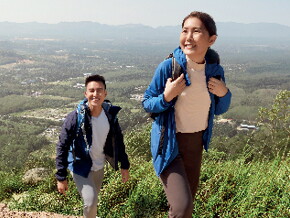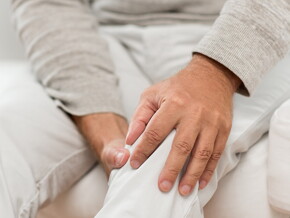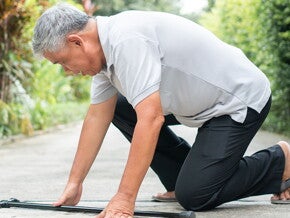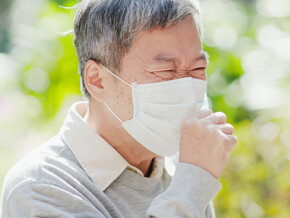
The strength you deserve for the life you desire
Every life-changing event, from a new job, marriage and childbirth to retirement involves a process of adjustment, emotionally and physically.
Realizing your dreams at 50 and beyond
For most of us, retirement also comes with ageing, both being equally life-changing. As we age, our blood vessels become stiffer, so the heart has to work harder. Our skin may feel drier and less supple. We may need reading glasses for the first time. Our hearing may not be as sharp. Bones are weaker and this increases the risk of fracture. Stiffer joints and reduced muscle mass can lead to weakness and reduced activity.
We can’t turn the clock back, but we can age gracefully. It isn’t about trying to look young. It’s about living your best life and having the physical and mental health to enjoy it. While self-acceptance and a positive body image at any age are paramount, exercise and healthy eating are both vitally important, especially from age 50 onwards.
Get Moving, Keep Moving.
Regular exercise significantly lowers your risk of diseases1, such as heart disease and cancer, and helps you retain your mobility longer. Exercise also lowers stress and improves sleep, skin and bone health, and mood.
Health and fitness experts recommend muscle- and bone-strengthening activities of moderate intensity or greater, that involve all major muscle groups2, two or more days per week. These can be performed using weights or resistance elastic bands.
Aerobic exercises can include brisk walking, swimming, dancing or cycling.
As you get older, you should also focus on activities that include balance training in addition to aerobic and muscle-strengthening exercises.
Most of our bodies have more wear and tear on them, and we need to realise that joints at 50+ have had a lot more mileage on them. Consult a fitness professional to learn how to modify movements so that you can strengthen what is weak; and stretch what is tight.
As with any physical activity, consult your doctor and make sure you're medically cleared to take on an exercise programme, and start slowly.
Eat Right, Live Well
Nutritionists and other dietary experts recommend that you eat foods that give you lots of nutrients without a lot of extra calories.
Topping the list are fruits and vegetables, preferably fresh; choose types with bright colours to get the vitamins you need. Protein is one of the building blocks of muscle and bone; make sure to include lean meats, poultry, seafood or eggs. Don’t forget whole-grain cereals, such as brown rice, oatmeal, and whole-wheat bread; you need them for vitamins and minerals, and they are higher in fibre than refined grains. You also need calcium and vitamin D now more than when you were younger; you can get them from low-fat or fat-free dairy, such as milk, yogurt or cheese.
Most of the fats you eat should be polyunsaturated and monounsaturated fats, which are primarily found in nuts, seeds, vegetable oils and fish. Choose foods that are low in saturated fat to help reduce your risk of heart disease.
You should definitely avoid processed foods and refined sugars, and keep your salt intake to a minimum to help keep your blood pressure down.
If your nutritional needs aren’t being met by your present diet, try supplementing with nutritional drinks like Enercal® Plus. This beverage provides you with the nutrients you need as a senior, as part of a balanced diet. Enercal® Plus is scientifically formulated with 50% whey protein and 50% soy protein. This unique combination works together to support muscle strength, so you can be better prepared against age related muscle loss. Balanced diet combined with exercise, it can go a long way in helping you stay in the peak of health!
Enjoying the Golden Years
While you are taking care of your physical health through exercise and a balanced diet, you are also improving your mental health. However, you can do a little more for your emotional well-being.
Research shows that those who stay active with planned activities can reduce your risk of depression and anxiety and help you sleep better3.
Socializing is important as it has been shown that social isolation is associated with general poor health. So include some sort of regular social activities for your happiness and your longevity. These could be your local handicraft club, art classes, concerts, or your weekly catch-up with your friends.
Working part-time is good for the pocket, but even if you don’t need the additional income, you may find happiness and greater life satisfaction simply by being around others and being needed.
Volunteering and helping others can create meaning and purpose, and that often translates into increased emotional and physical well-being.
In the end, your golden years are yours to do what makes YOU happy. You can enjoy the little things or you can live your dreams. You can pamper your loved ones or help to improve lives in your community. You might start a new career doing what you love or you can pursue your passion for the sheer enjoyment of it. Whatever you decide, with patience, care, and smart lifestyle changes, we can make the most of our bodies as we age.
Disclaimer: This content is shared for informational purposes only and not intended to be a substitute for professional/medical advice, diagnosis, or treatment. We recommended that you always seek the advice of your healthcare professional for any questions you may have regarding a medical condition/specific situation.



